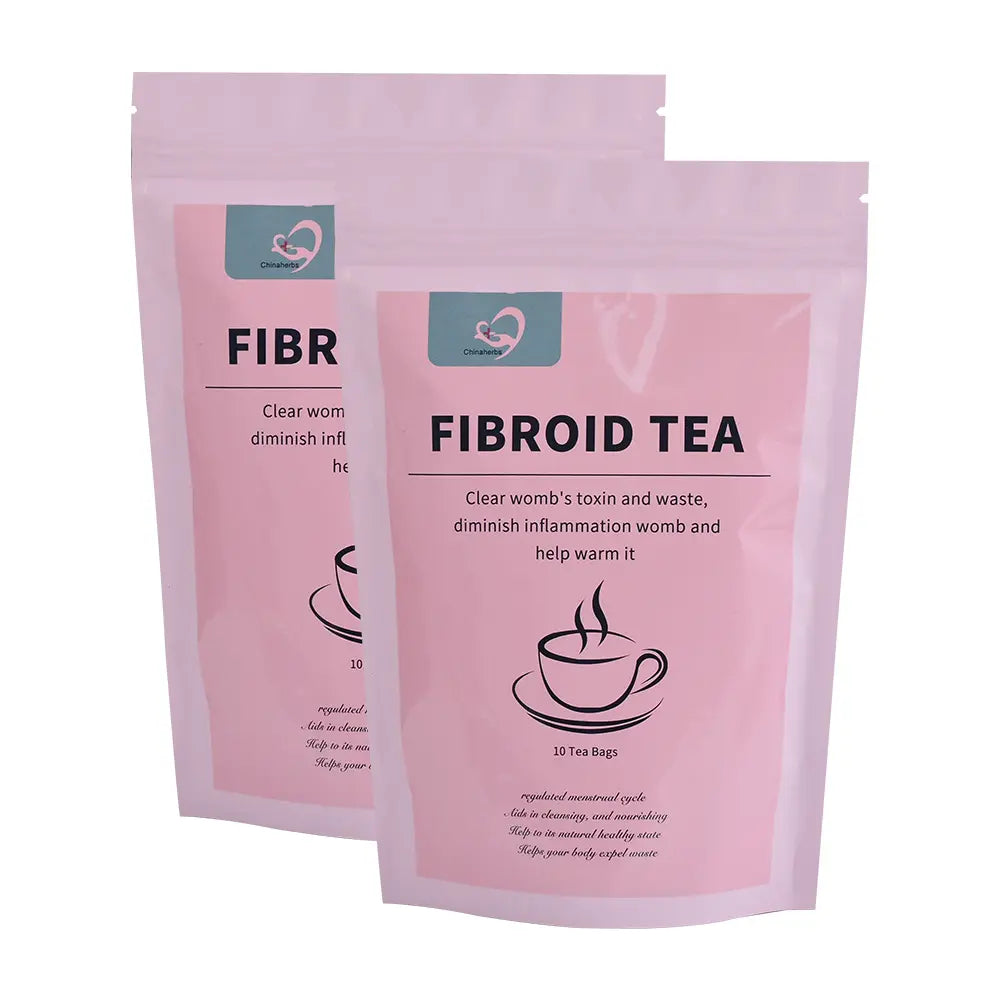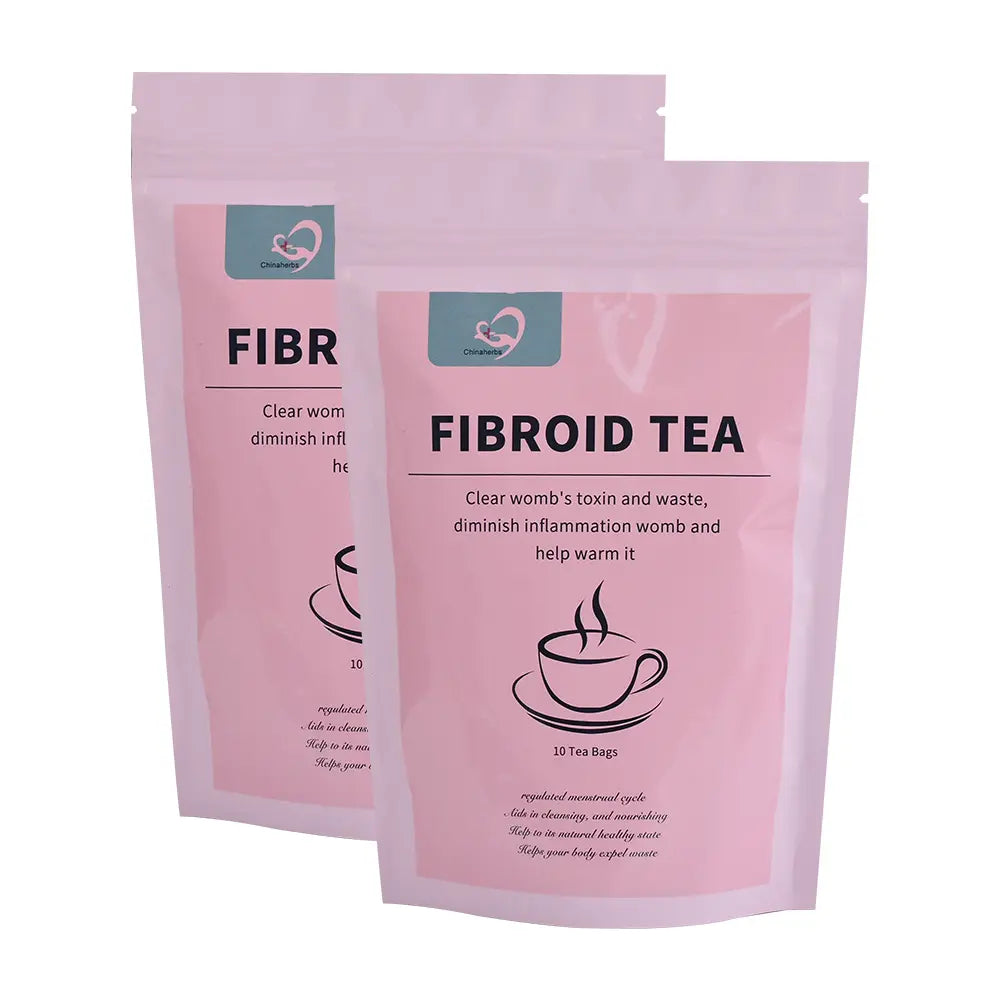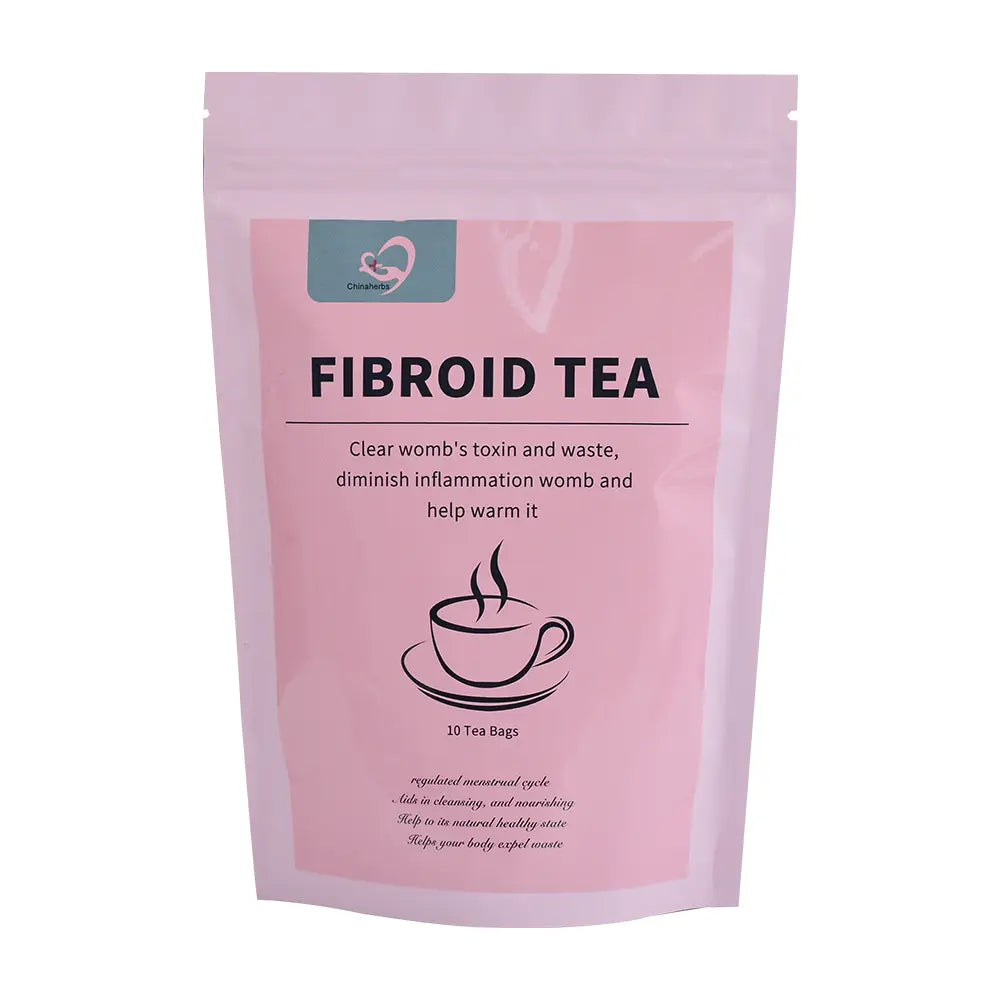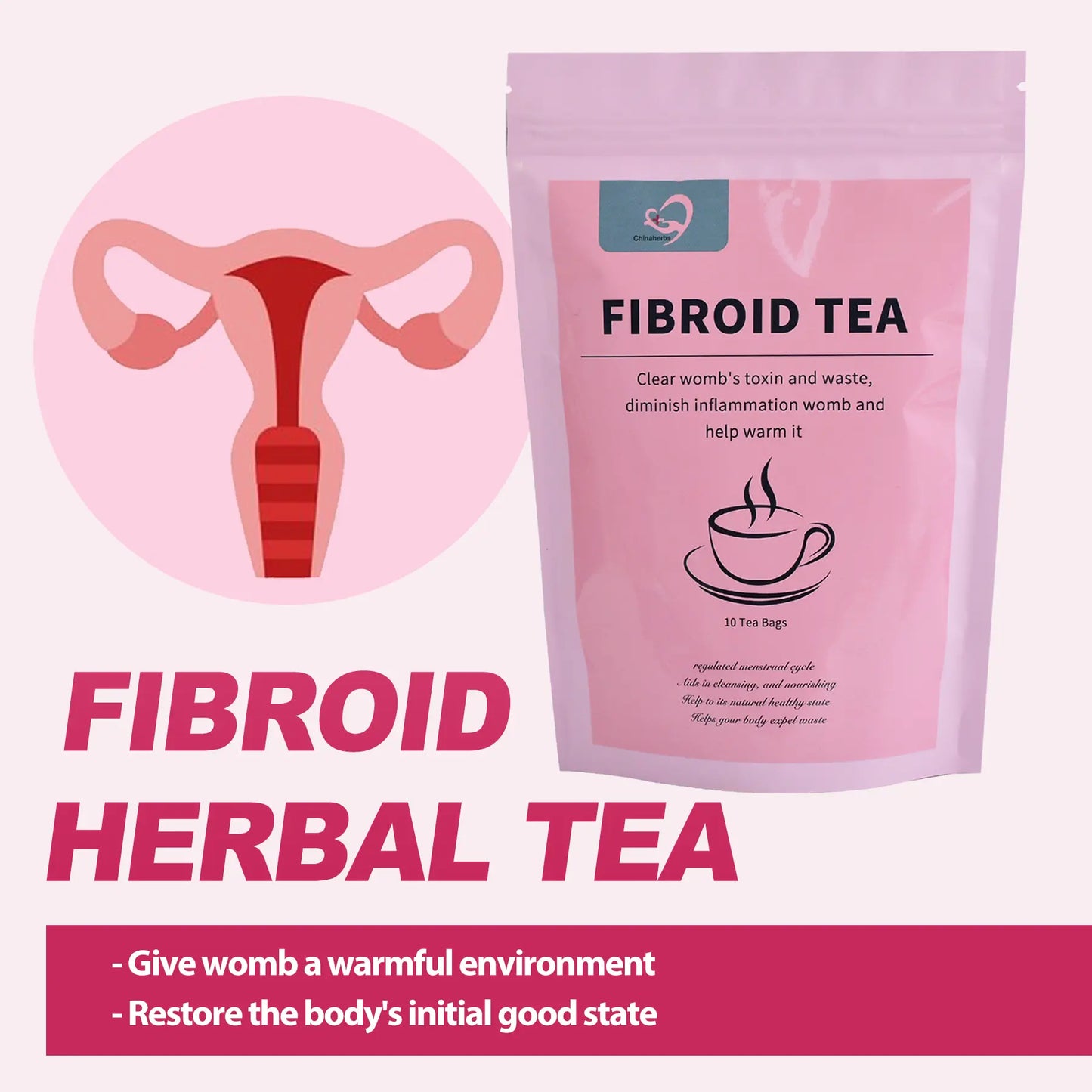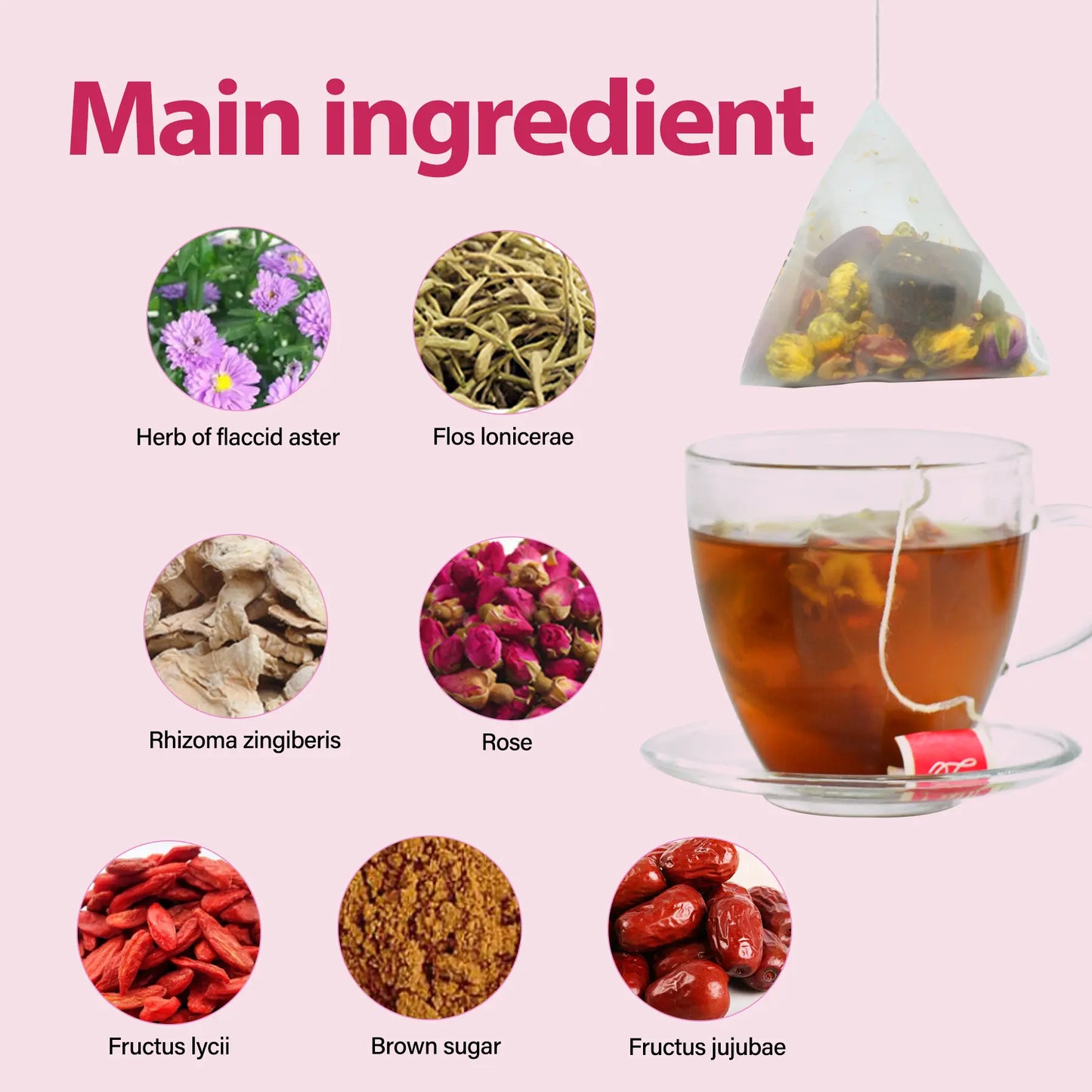How to Drink Tea if You Have Uterine Fibroids?
HiherbsOfficial
Share
A deep dive into how targeted herbal tea for fibroids can complement your overall health and symptom management plan.
Uterine fibroids affect millions of women globally. While medical treatment is essential, many seek natural, complementary ways—like tea—to manage symptoms. The key lies in selecting infusions that support hormonal balance, circulation, and reduce inflammation.
1. What Exactly is 'Fibroid Tea'?
The term "fibroid tea" is generally used to describe any supportive herbal preparation, rather than a single standardized product. These blends focus on properties believed to benefit uterine health and address factors commonly associated with fibroid development, such as poor blood circulation (stasis) and internal inflammation.
Traditional Supportive Herbs Often Included:
- Saffron Tea (藏红花茶): Primarily used to invigorate blood circulation and dispel blood stasis, which can help alleviate associated pain and congestion.
- Motherwort Tea (益母草茶): A recognized uterine tonic, traditionally used to support menstrual flow and reduce uterine spasms.
- Dandelion Tea (蒲公英茶): Often included for its liver-supporting and mild diuretic properties, which aids in hormonal clearance (as the liver processes excess hormones).

2. Daily Teas That Offer Auxiliary Support
Beyond specific herbal blends, several mainstream teas can be incorporated into a fibroid-friendly diet due to their generalized health benefits, primarily their potent anti-inflammatory and antioxidant profiles:
2.1 Green Tea
The power of Green Tea lies in its catechin content, particularly Epigallocatechin gallate (EGCG). EGCG is a robust antioxidant that fights free radicals. Studies suggest it may have anti-proliferative effects, supporting the body's mechanisms against the growth of benign tumors.
2.2 Black Tea
Black Tea is inherently warming, which is often preferred for pelvic health. Its rich concentration of theaflavins and thearubigins provides systemic anti-inflammatory benefits, which can help mitigate generalized inflammatory processes in the pelvic region.
2.3 Aromatic Flower Teas
Jasmine Tea helps "soothe the liver" and regulate *Qi*. Rose Tea is excellent for promoting blood circulation, making it valuable for those with heavy or painful periods associated with fibroids.
2.4 Expansion: Turmeric and Ginger Infusion
While not traditional tea, a simple infusion of fresh ginger and turmeric root offers some of the most powerful natural anti-inflammatory effects available. Ginger is great for warmth and digestion, and curcumin (in turmeric) is widely studied for its potent ability to modulate inflammatory pathways, making it a supportive drink for fibroid patients.

3. Which types of tea should be avoided when having uterine fibroids?
It's less about which tea is strictly forbidden, and more about mindful preparation and moderation. Focusing on avoiding factors that could promote inflammation or hormonal imbalance is crucial.
- 3.1 Avoid Highly Concentrated Tea: Concentrated brews contain high amounts of stimulants (caffeine and theophylline). Opt for light brewing or decaffeinated options.
- 3.2 Strictly Minimize Sugary Tea: High sugar intake is linked to chronic inflammation and elevated insulin-like growth factors. Always choose unsweetened teas.
- 3.3 Temperature Extremes: Extremely cold beverages are traditionally believed to cause internal "coldness" or stagnation. Consume tea at a comfortable, warm temperature.
- 3.4 Important Consultation: Phytoestrogenic Herbs Herbs with strong phytoestrogenic properties should be discussed with your doctor before regular use, as fibroids are estrogen-dependent growths.
4. References and Further Reading
The information presented here is based on traditional knowledge and initial scientific studies. For comprehensive health decisions, consult primary medical literature and a healthcare professional.
- Smith, J. A. (2022). *Anti-proliferative effects of Green Tea EGCG on uterine fibroid cells: A review.* Journal of Women's Health, 45(2), 123-130.
- Chen, L., & Wang, Y. (2021). *Traditional Chinese medicine approach to managing uterine leiomyoma: Blood stasis and Qi regulation.* TCM Herbal Review, 15(4), 88-95.
- Miller, D. B. (2020). *The role of inflammation and high sugar intake in hormone-sensitive tumor growth.* Endocrinology Today Press.


